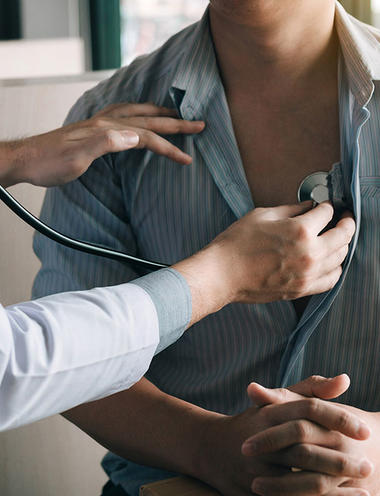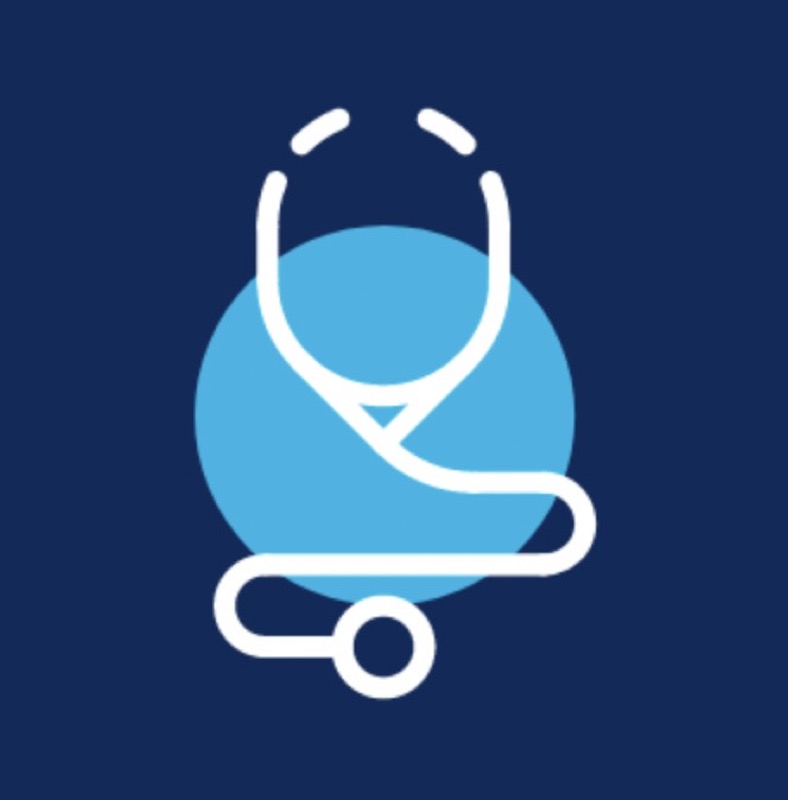Accredited Chest Pain Center
As an Accredited Chest Pain Center through the ACC (American College of Cardiology), the Wadley Team is committed to providing efficient, timely emergency heart care to all patients. This has been achieved by enhancing coordination among all providers involved in the patient’s care: emergency responders, local EMS, our hospital ED team, the heart cath team, laboratory staff, the critical care unit and cardiac rehab. Our team has worked hard to reduce the time-to- treatment during the critical early stages of a heart attack and are proud to be well below the national average benchmark of 90 minutes.
Our 24-hour Chest Pain Center team is trained in identifying patients who may be having a heart attack – even when they don’t display the usual symptoms. The key to successfully treating a heart attack is early detection and treatment.
Medical (Non-invasive) Cardiology
Identifying heart problems without using any needles, fluids, or other instruments inserted into the body is medical cardiology. Our non-invasive cardiologists utilize techniques such as nuclear cardiology, echocardiography, stress tests, heart monitors and CT scans. Once your specialist has identified risk factors or existing conditions, they may recommend medication and lifestyle changes to improve your heart’s health.
Loop Monitoring
An implantable loop recorder is a type of heart-monitoring device that records your heart rhythm continuously. It records the electrical signals of your heart and allows remote monitoring by way of a small device inserted just beneath the skin of the chest. This can help answer questions about your heart that other heart-monitoring devices don't provide. It can capture information that a standard electrocardiogram (ECG or EKG) or Holter monitor misses because some heart rhythm abnormalities occur infrequently.
Impella
Impella is a FDA-approved, non-surgical heart pump used to temporarily assist the pumping function of the heart during stent placement and ensure blood flow is maintained to critical organs. This procedure, known as a Protected PCI, reduces the risk of complications and helps to decrease repeat heart procedures. This heart pump is also used to support the heart function of critically ill patients in cardiogenic shock.
Intravascular Ultrasound (IVUS)
Intravascular ultrasound (IVUS) is medical imaging that uses a specially designed catheter with a tiny ultrasound probe to generate sound waves and produce images of blood vessels. IVUS is used in the coronary arteries to determine the amount of plaque build-up and can show the entire artery wall to provide important information about the amount and type of plaque buildup. This can help determine if you are at risk for heart attack.
Cardiopulmonary
The Cardiopulmonary Department provides both diagnostic services, and therapeutic services, treating a patient population from newborn to geriatrics. Our services are available as an inpatient or outpatient and in the emergency department as well.
Cardiac Rehabilitation
Our highly skilled physicians prescribe individualized exercise training, education and nutritional support over various phases of the program. There are several evidence-based benefits of cardiac rehabilitation, including:
- Improves quality of life and psychosocial well-being
- Helps reduce stress, fear and anxiety
- Lowers blood pressure
- Improves cholesterol and helps with weight loss
- Decreases risk of recurrence of heart problems and reduces mortality
- Increased muscle tone and strength
Who Qualifies for Cardiac Rehabilitation?
- Stable Angina
- Heart Attack (within 1 year)
- Coronary (Heart) Artery Bypass
- Heart valve repair or replacement
- Angioplasty (PTCA)
- Coronary (Heart) Stents
- Heart or Lung Transplant
- Chronic Heart Failure
How to get started on a cardiac rehabilitation program?
Cardiac Rehab is generally started soon after hospital discharge, but may be started up to one year after a cardiac (heart) event. Your primary care physician, cardiologist or surgeon can refer you to the program by simply writing a prescription, or call us and we will assist with this process.
Fee: Is a covered benefit of Medicare – B and most insurances
Phases of Cardiac Rehabilitation
Phase 1: Education regarding the disease and recovery is started during your hospitalization and continued in Phase I
Phase 2: A medically supervised program designed to help heart patients recover quickly and improve overall physical and mental functioning. Cardiac Rehab Phase II is a 12-week program of thirty-six sessions. The sessions are every Monday, Wednesday and Friday and last one hour. You will be able to choose the time that best fits your schedule.
Phase 3: This is a non-monitored exercise program for heart patients. You can exercise in a safe and welcoming environment with the presence of two registered nurses. Blood pressure and pulse is monitored throughout your workout. Phase III typically not covered by insurance.
A prescription is needed from your physician and the staff can assist in obtaining one from your physician.
Cardiac Rehabilitation
For more information, call (903) 798-7298
Exercise Days
Monday, Wednesday, Friday at specified times.
Cardiovascular Service Line
Sher Fomby, FNP, Clinical Director
903-798-8924
[email protected]
The various other departments of Cardiopulmonary are open Monday through Friday, ranging from 7am-4:30pm.
HeartView Scan
Each year in the United States, over 150,000 people die from heart attacks with no prior symptoms. The key to preventing a heart attack is early diagnosis of risk factors.
If you have a family history of heart disease or other factors that put you at risk, you should schedule a HeartView Scan (calcium scoring screening). This screening scan will give you important information on your personal risk for heart disease. This 10-minute, non-invasive scan is performed with our CT technology and allows doctors to see the tiniest plaque buildup in the arteries of your heart. For $75, you can have peace of mind and be armed with important information about your heart health. Call (903) 798-7955 for more information on this screening or to schedule an appointment.





